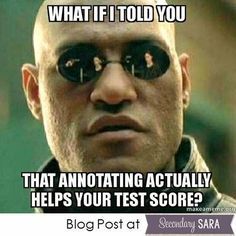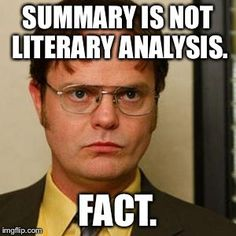Candace Moore
AP English Literature 📚
145 resourcesSee Units
AP English Lit: Poetry Analysis
The Prompt
There are three types of free-response questions on the AP Literature exam. You will be given 120 minutes to write all three essays, so you should take approximately 40 minutes to write each one. The entire free-response section is worth 55% of your total exam score.
Question 1, that you will see first on the exam, will be a poetry analysis prompt. You will need to read a given poem of 100 to 300 words and a prompt to guide your analytical essay about the poem. The prompt will help you figure out what to look for as you read the poem.
So we’re all on the same page, here are the most important definitions you need to know that are necessary to understand any discussion of poetry analysis.
- analyze: examine the passage closely for details that help you interpret and explain the question topic (i.e. breaking down how the poem was put together)
- complexity: the thematic, character or structural tensions or conflicts that are present in any poem
- thesis: the claim that establishes your line of reasoning and interpretation of the text
Example 1:
2011 AP English Literature and Composition Exam Q1 (from CollegeBoard.org)
The following poem is by the contemporary poet Li-Young Lee. Read the poem carefully. Then write a well-developed essay in which you analyze how the poet conveys the complex relationship of the father and the son through the use of literary devices such as point of view and structure.
See how the prompt asks about the “complex relationship of the father and son”? This helps you to know how to approach the poem and how to annotate it as you read it. The italics at the end of the prompt are to note specific literary devices that are given in older prompts that you might use to practice, but will not be given in 2020. However, the prompt will always give you:
- author
- time period of publication
- a thematic, topical or structural aspect (abstract topic) to analyze
It is helpful to underline or circle these three elements to prepare you to read the poem. The prompt will always tell you to look for the literary devices or elements that the poet uses to create the thematic/topical/structural aspect of the poem.
Reading the Poem
Now that you know what you’re looking for, read the poem. As you read, annotate the poem for elements of the abstract topic that the author has created. Make sure that you are also making connections between the topic and the literary devices.
🎥 Watch: AP Lit - How to Read a Poem

Annotate for:
- figurative language
- shifts in tone, meaning or language
- poetic structure and form
- diction and syntax that connect to the topic.
Example 2:
In the following 1919 poem by Claude McKay, the speaker discusses courage in the face of death. Read the poem carefully. Then, in a well-written essay, analyze how McKay uses poetic elements and techniques to develop his message about death during conflict.
In this prompt, you are directed toward McKay’s topic and can determine that he is delivering a message about it, so as you read, you would annotate for not only the topic (death) but his message to his audience.
When you have read through the poem (twice if possible!), you will have an idea of what you want to write about. Then it is time to write your thesis.
Not to alarm you, but your thesis might be the most important part of your essay. It establishes what you’re going to say, and whether or not you’re going to be able to back it up with the poetic evidence. It should be about a sentence long (it could be a couple, but no more), and clearly state:
- the claim you’re making about the poem -- directly about the abstract topic given and defensible with the poetic devices in the poem
- your original interpretation of the poem that is not a summary
If you were given the following prompt (Example 3) ...
In the following poem by William Shakespeare (1609), the speaker reflects on the passing of time. Read the poem carefully. Then, in a well-written essay, analyze how Shakespeare uses poetic elements and structure to convey his complex understanding of time.
...then your thesis would clearly state your interpretation of his understanding of time and the complexity of the understanding (or, why is it confusing/complex?), and probably the poetic elements that created this complexity and understanding.
The Rubric
As you may know, the rubric for AP Lit essays has changed from a 9-point holistic rubric to a 6-point analytical rubric. A perfect score is broken down as follows:
- 1 point for your thesis
- 4 points for your evidence and commentary
- 1 point for sophistication
The rubric that College Board AP exam readers will use is one whole page per category. 😦 For now, let’s dive into what each category means.
Thesis Point
You cannot earn a partial point for your thesis -- you either earn a point or you do not. If you write a thesis statement that interprets the poem according to the prompt in a way that is defensible according to the poem: 1 point. In other words, you write a claim that can be defended by the poem.
If your thesis is too general, summarizes or describes the poem, or restates the prompt only, you will not earn a point.
Evidence and Commentary Points
You can earn up to 4 points for evidence and commentary. All of your evidence needs to be integrated and relevant, and all of your commentaries should connect your evidence to your prompt-based thesis.
If you write paragraphs that are unrelated to the prompt and/or the passage, you will earn a 0 in this category.
If you summarize the poem or describe its content, you will earn 1 point. You will also earn one point if you refer to the literary techniques (that you found in your annotation) but do not explain them or connect them to the poem and your claim/thesis.

If you have some relevant evidence, connected weakly to some explanation and argument, you will earn 2 points. This includes inaccurate commentary or misinterpreted evidence. 😕
You will earn 3 points for a solid job of selecting evidence and connecting it to your claim. This means your line of reasoning is supported, and your evidence contains literary elements that you connect succinctly to the abstract topic you were given.
For consistent, persuasive support of your claim that uses significant and specific evidence, you will earn the full 4 points! You would have examined more than one literary device/technique’s use throughout the poem, and organized your essay in order to best defend your claim.
PRO TIP: Try NOT to organize your essays with a paragraph per device, but instead write from the beginning of the poem to the end.
Sophistication Point

This point is new and very hard to pin down. It is only one point, which means you earn it or you don’t. But your sophistication in your essay can be found in your writing style, your claim and/or your support of your claim. Earning this point means that your argument was complex as well as responded appropriately to the complexity of the poem.
Browse Study Guides By Unit
🤔Exam Skills
Short Fiction Overview
- AP English Lit: Poetry Analysis
- Reading the Poem
- The Basics of the AP Literature Multiple Choice
- What is a Short Story?
- Literary vs. Commercial Fiction
- How are short stories used on the AP Literature Exam?
- How to read a short story. Like, really read it.
- The (Sometimes) Hidden Question: Overall Meaning
- Short Stories and Complex Relationships. (No, Not That Kind. Maybe.)
- Literary Devices and Figurative Language in Short Stories
- Characterization in Short Stories
- All Roads Lead to Tone and Irony
- Thematic Analysis of a Short Story
- Some good, dense literary short stories for practice (and enjoyment!)
🌱Unit 1 – Intro to Short Fiction
☕Unit 2 – Intro to Poetry
🎭Unit 3 – Intro to Longer Fiction & Drama
⚔️Unit 4 – Character, Conflict, & Storytelling in Short Fiction
🌈Unit 5 – Structure & Figurative Language in Poetry
🛠️Unit 6 – Literary Techniques in Longer Works
🏛️Unit 7 – Societal & Historical Context in Short Fiction
🤾🏾♀️Unit 8 – Advanced Techniques in Poetry
🚣🏾Unit 9 – Nuanced Analysis in Longer Works

Fiveable
Resources
© 2025 Fiveable Inc. All rights reserved.